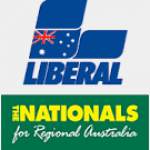Australians will vote in the federal election this Saturday, so where do the major parties stand on issues of social justice and care for the environment?
BY The Good Oil
Australians will go to the polls on Saturday 18 May, and while there has been extensive coverage on the “usual suspects” such as the economy, tax cuts, health and education, less attention has been given to the social justice issues of homelessness, asylum seekers and climate change.
The Good Oil outlines the key challenges in these areas and highlights some of the major parties’ commitments and election policies.
Homelessness and Housing
According to Vinnies, on any given night in Australia more than 116,000 people are homeless. This represents a 20 per cent increase in people sleeping rough over the previous five years.
In their 2016 The Ache for Home report, Vinnies called on the federal government to:
- Establish a $10 billion Social and Affordable Housing Fund
- Prepare a National Housing Plan
- Recognise the human right to housing, and
- Set new targets to halve homelessness and halve the housing shortfall by 2025.
Coalition commitments
- In the 2019–20 Federal Budget, the Coalition Government announced it would provide $1.56 billion through the National Housing and Homelessness Agreement – a 1.88% increase on the previous year
- $114.9 million to states and territories through specific National Partnerships, including:
- $300,000 for the National Regulatory System for Community Housing
- $3.5 million for Northern Territory Remote Aboriginal investment
- $110 million for remote housing
- Funding to trial social impact investments that aim to assist vulnerable priority groups, including:
- $500,000 for vulnerable priority groups
- $500,000 for youth at risk of homelessness
- $5.0 million to establish a task force to examine the Commonwealth’s role in the Social Impact Investment market so that such investments can provide solutions for entrenched disadvantage
- $30 million as part of the Hobart City Deal to provide over 100 new social housing dwellings (Source)
Labor commitments
- Labor is committed to developing a national plan to reduce homelessness
- Build 250,000 new affordable rental homes over 10 years
- Invest $88 million over two years for a new Safe Housing Fund
- Reinstate a Minister for Housing and Homelessness and re-establish the National Housing Supply Council
- Reform negative gearing and capital gains tax concessions, along with other reforms to improve housing supply and affordability
- $8 million package to tackle youth homelessness including funding for Fr Chris Riley’s Youth off the streets program (Source 1) (Source 2)
Greens commitments
- The Greens support the elimination of housing-related poverty
- The provision of supportive housing for homelessness
- A national housing affordability plan
- Reducing the impacts of negative gearing on housing affordability
- Housing assistance by the government with minimal waiting times
- Adequate investment in public and community housing
- Improved legal rights and standards for renters
- Increased emergency accommodation and transitional housing for people in need
- First Nations people to have access to adequate, secure, well-maintained, safe and culturally appropriate long-term housing, wherever they live
- A targeted national strategy to address the high incidence of homelessness in the LGBTIQ and other marginalised communities (Source)
Asylum Seekers
Jesuit Social Services (JSS) said there is clear evidence that Australians are looking for leadership on key issues of social justice and inclusion, and “want a more compassionate society”. One of these areas is the way Australia responds to refugees and asylum seekers.
In their Federal Election Platform 2019, JSS called on the major political parties to:
- End offshore detention
- End the immigration detention of children seeking asylum
- Abolish temporary protection visas
- Reverse cuts to Status Resolution Support Services (SRSS), and
- Support access to family reunion for refugees.
Coalition commitments
- The Coalition is focused on strong border protection including offshore processing, temporary protection visas and boat turnbacks
- The Coalition has increased the Minister’s power to cancel visas for non-citizens convicted of a serious crime which resulted in a 12-fold increase in visa cancellations (Source)
Labor commitments
- Labor is committed to maintain Australia’s border protection
- $500 million for the work of the United Nations High Commission for Refugees to deliver stronger asylum seeker assessment and resettlement processes across the region
- Reform the community support program to develop a Community Sponsored Refugee Program to, over time, allow up to 5,000 refugees to resettle in Australia annually
- Appoint a Special Envoy for Refugee and Asylum Seeker Issues to advance Australia’s interests and leadership on refugee issues within the region and develop an Australian Refugee Commission (Source)
Greens commitments
- The Greens are committed to Australia showing leadership in our region by fostering international cooperation to protect people seeking asylum and refugees by encouraging all nations to sign and ratify and uphold the Refugee Convention and the 1967 Protocol
- An increase in the humanitarian quota, and offshore quotas
- The current system of humanitarian visas (granted only by ministerial discretion) to be replaced with an open, accountable humanitarian visa assessment
- Assessment of applications for asylum completed in a timely and transparent manner
- The elimination of mandatory and indefinite detention, and the abolition of offshore processing
- Recognition that unaccompanied children have rights and are entitled to special care and assistance, including a separate approach to the adult system
- Services for new migrants, refugees and special category visa holders that include appropriate English language and financial literacy classes, social security, health, legal and interpreter services, and post-trauma counselling where needed (Source)
Climate change
The Clean Energy Council (CEC) said the absence of any long-term energy strategy at the federal level is crippling the Australian energy sector and increasing power prices for consumers.
CEC is calling on the major political parties to adopt their policy recommendations including to:
- Commit to a zero emissions electricity sector target well before 2050 and at least 50 per cent renewable energy by 2030
- Accelerate reforms to develop Australia’s electricity transmission network for a clean energy future
- Mandate solar power in all new homes, and
- Commit to the development of a clean energy export strategy.
Coalition commitments
- The Coalition is committed to Australia meeting its global emissions target of 26 to 28 percent below 2005 levels by 2030
- A $2 billion Climate Solutions Fund to help farmers, small businesses and Indigenous communities to reduce emissions
- Constructing Snowy 2.0 hydro renewable power station to power 500,000 homes
- Developing a National Electric Vehicle Strategy
- Cleaner, Greener Local Communitiesinitiative to reduce emissions and improve air and water quality
- Investment to see Australia’s renewable energy reach 23.5% of electricity supply by 2020
- Investing $1.2 billion to ensure the health of the Great Barrier Reef
- $10 million under the Environment Restoration Fund to support the creation of safe havens for threatened species
- A National Food Waste Strategy to halve food waste by 2030 (Source)
Labor commitments
- Labor is committed to setting a target of 50 per cent of the nation’s electricity is sourced from renewable energy by 2030
- Supporting the transition to cleaner and cheaper power
- Boosting clean transport and infrastructure and implementing vehicle emission standards
- Building jobs and industry to bring down pollution, support trade exposed industries, and build the new jobs and industries of the future
- A $1 billion plan to kickstart Australia’s hydrogen economy
- Extending the safeguard mechanism to reduce pollution from Australia’s biggest polluters
- Reducing pollution on the land by reinvigorating the carbon farming initiative
- Increasing energy efficiency by implementing a comprehensive Energy Productivity and Efficiency Review
- Reinstating an Australian Climate Ambassador and reengaging constructively in the UNFCCC process and supporting our Pacific neighbours
- Restoring Australia’s Climate Change Institutions (Source)
Greens
- The Greens are committed to phasing out coal and moving to 100 per cent renewables and delivering cheap, clean and reliable energy for homes, businesses and industry
- 180,000 new jobs in renewables, including a renewable energy export industry to replace coal exports
- Provide support for coal workers and communities as we phase out coal
- Create Power Australia, a not-for-profit, public energy retailer for renewables
- Prioritise and properly fund clean, safe, affordable public and active transport
- Kick start the electric vehicle revolution and reduce the cost of electric vehicles
- End political donations from mining companies (Source)
For further detail and policy positions see:



